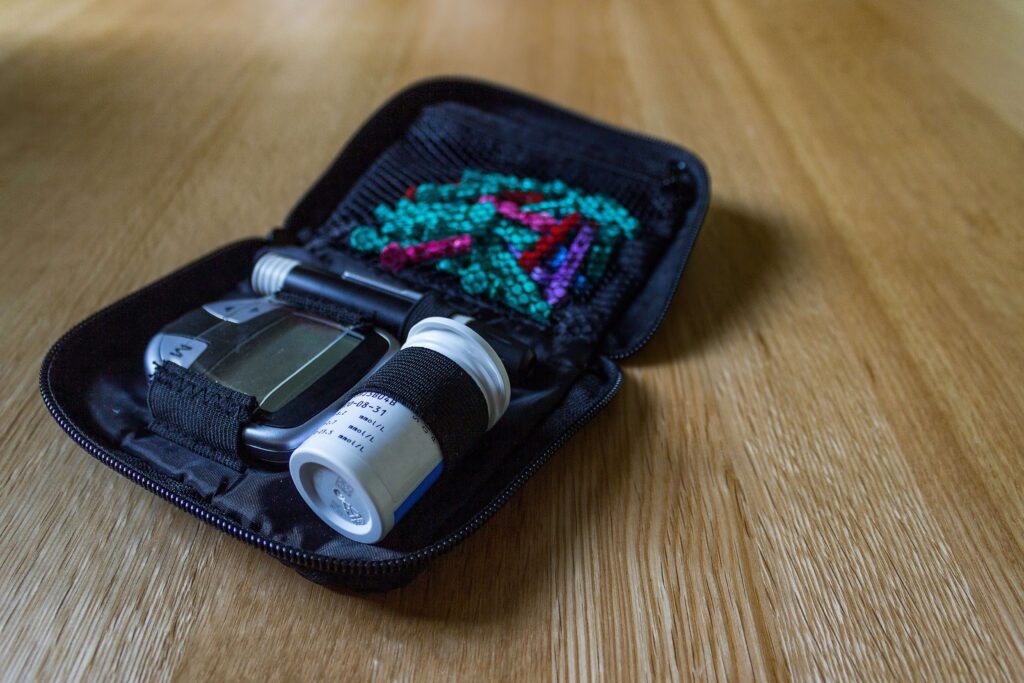You can access life insurance coverage whether you have Type 1 or Type 2 diabetes. However, the policies you qualify for will be determined by the type of diabetes you suffer from and how well you have controlled it since diagnosis. Approximately 1.6 million people in the US alone have Type 1 diabetes, according to the American Diabetes Association.
Most Type 1 diabetes patients remain doubtful of their eligibility for life insurance coverage. That’s because accessing life insurance coverage with any type of diabetes is more of a hassle than it is for people without diabetes. Most life insurance policies will mainly depend on your health profile, but Type 1 diabetes insurance coverage can still be obtained easily and affordably.
Type-1 Diabetes Life Insurance Policies
Accessing the best life insurance policy for a Type 1 diabetes patient can be challenging. It’s typically more expensive to access a life insurance policy for Type 1 diabetes patients than for Type 2 diabetes patients, but it’s not unachievable.
The ultimate pricing and ease of access to good life insurance coverage with Type 1 diabetes are determined by your short-term and long-term health history. This means every applicant gets different rates depending on how complete their health profile is.
When Can You Access Life Insurance With Diabetes?
The timing of your life insurance coverage with diabetes application matters greatly in determining which insurance policies you qualify for. Some of the best periods to apply for life insurance with diabetes include:

After Getting Your Diabetes in Control
People with diabetes almost always get higher rates for the same life insurance policies, but with a good health track record with your condition, your rates will likely be lower. Keeping a good record of your medical exam reports will help prove your diabetes has been under control for a certain period.
If your A1C (glycohemoglobin) has been stable for the time recommended by the insurance firm, your coverage options will be significantly cheaper than when your condition was more unstable.
Wait for the Gestational Diabetes Phase to Pass
In the case where your diabetes is gestational, it is recommended that you wait until it is resolved before applying for life insurance coverage. If you’re not suffering from other conditions, your coverage policy will likely be more affordable once your gestational diabetes ends. It will not only offer you more coverage options but also at much cheaper rates.
Which Life Insurance Options Are Available for Diabetics?
The severity of your condition and your history with your current life insurance provider will determine the type of coverage you access. There are various options from reputable insurance companies, and you should consider which quotes suit you best. Some of the life insurance options for people with diabetes include the following:
Guaranteed Issue Life Insurance
Guaranteed issue life insurance offers specific individuals life insurance coverage without medical exams. This type of life insurance must be accepted for people who qualify. People who can access guaranteed issue life insurance should have the following:
- Medical conditions that make it impossible to access other life insurance options.
- Limited life insurance budgets.
- No problem with having a significantly smaller life insurance coverage.
Guaranteed-issue life insurance may be for you if you have severe diabetes and conventional life insurance policies are not affordable. However, you should know that guaranteed issue life insurance policies often feature graded health benefits. Your beneficiaries only get a sum equal to your paid premiums plus some interest.
Work with a trusted life insurance agent before selecting this type of policy. You may have access to some other better life insurance policy. Given the coverage you get with guaranteed issue life insurance, it is significantly more expensive than other conventional life insurance policies.
Term Life Insurance for Diabetics
The most inexpensive life insurance option, term life insurance, often guarantees fixed rates through a specific term (such as 5, 10, or 20 years). Term life insurance policies can help your beneficiaries pay off debts from payouts made by the insurance firm after the agreed term expires.
Permanent Life Insurance for Diabetics
There are various options to choose for permanent life insurance coverage, including universal life insurance and whole life insurance. All permanent life insurance policies provide death benefits to your beneficiaries after you pass away. As long as you pay all the agreed-upon premiums, permanent life insurance lasts your entire lifetime.
Group Life Insurance
Group life insurance is also a life insurance option worth considering. It provides coverage for all employees without requiring any employee to provide any medical examinations to the insurance provider.
However, group life insurance offers lower benefits than permanent and term life insurance policies. If you can buy more coverage without proving your medical wellness, it would be wise to maximize this coverage.
Life Insurance Riders
Some life insurance policies allow you to customize your coverage even if you suffer from Type 1 diabetes. Life insurance riders include:
- Critical illness rider: This custom life insurance coverage allows you to withdraw an amount of the death benefits to facilitate your medical expenses. However, you will need proof of chronic or critical illness to access a critical illness rider.
- Accelerated death benefit rider: This coverage option allows you to get a portion of your death benefits earlier than agreed if your condition is determined terminal.
- Guaranteed insurability rider: Allows access to coverage increments later on without needing a medical examination.
- Waiver of premium rider: This rider allows you to halt your premiums if your condition does not allow you to work anymore.
- Term conversion rider: Allows you to convert part or entire term life policy into a permanent coverage policy before the agreed term expires.
What Is the Pricing for Type-1 Diabetes Life Insurance Premiums?
People suffering from Type 1 diabetes often have difficulty qualifying for life insurance coverage, let alone finding affordable life insurance options. That’s partly because people with Type 1 diabetes have to take shots or regular pills to keep the condition in control. Nevertheless, it is not impossible to access life insurance with Type 1 diabetes.
The pricing of your life insurance cover with Type 1 diabetes will largely be determined by your blood sugar levels, age, exercise, reaction to your diabetes medication, diet, and whether you have other underlying conditions besides diabetes.
Queries To Expect From Insurers About Your Type 1 Diabetes
After selecting a life insurance policy that necessitates an examination of your health, there are several questions you can expect from your insurer about your health condition, medical history, and lifestyle.

Some of the more specific questions you can expect about your diabetes condition include the following:
- What diabetes type are you suffering from?
- When were you first diagnosed with this type of diabetes?
- Do you have any other medical conditions as a result of diabetes?
- How do you monitor your glucose levels?
- Are you currently under any medication to control your condition? If so, what type of medication and dosages are you currently under?
- Are you taking any insulin, and how many daily units do you have to take?
- What is your average A1C reading for the past 12 months?
- What is your current A1C reading?
- Do you have a diet and exercise routine to help you manage your condition?
- Who is your physician, and when last did you visit them?
- Are you on dialysis?
- Have you ever been in a coma due to your condition?
You should have records from your recent health examinations sent by your doctor. You may also need prescriptions, appointments, hospitalizations, and referrals for your diabetes. It is possible that you may also be required to undertake a medical examination by a technician selected by the insurance firm.
The medical exam often includes a blood sugar test, height and weight measurements, and HDL and LDL cholesterol level tests. Knowing all this information is advisable during your application to make the whole process smoother. Also, keep up with your exercise and diet routines before your medical examination to qualify for the best life insurance options possible.
Get the Best Life Insurance Quote With Type 1 Diabetes
While accessing a satisfactory life insurance coverage policy if you have Type 1 diabetes can be challenging, but various favorable options are available. Alia Quotes is a trustworthy insurance partner with various options for people with Type 1 and Type 2 diabetes. We are an excellent resource for anybody looking for insurance.
We can advise you about the different insurance alternatives available to you and assist you in finding coverage that fits your specific requirements and budget.
Compare insurance alternatives, calculate your insurance requirements, or schedule a meeting with experts to get a free quote or learn more about your options.
Our team is here to assist you with life insurance, mortgage protection, or any other type of coverage. We provide a broad choice of insurance alternatives from top-rated providers, and our team of specialists will help you choose the best coverage.
Contact us today and have peace of mind as we guide you on your insurance journey.

FAQs
Here are some FAQs about getting life insurance for someone with Type 1 Diabetes.
Do you have to disclose my diabetes to the insurance company when applying for life insurance coverage?
Yes. Do not hide your health condition from any insurer. Lying is a fraud, and you must remain completely honest or risk nullifying your life insurance coverage with the company without a refund.
Are there any specific types of life insurance policies recommended for someone with Type 1 Diabetes?
No. There is not one specific type of life insurance policy recommended for someone with Type 1 Diabetes. You should speak with a financial advisor or insurance agent to determine the best types of coverage based on your specific circumstances and needs.
